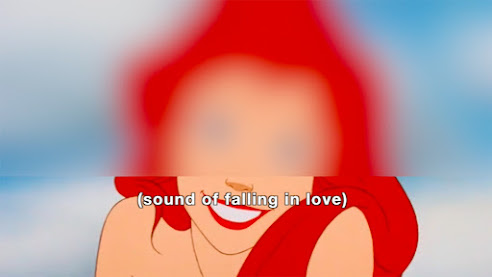AMIE// ARTIST RESEARCH // CAPTIONS - CLOSED CAPTIONS
called Critical Creative Corrective Cacophonous Comical: Closed Captions // 2019, p.174
Available from: https://www.moussemagazine.it/magazine/critical-creative-corrective-cacophonous-comical-closed-captions-emily-watlington-2019 (2019). Critical Creative Corrective Cacophonous Comical: Closed Captions — Mousse Magazine and Publishing [online]. [Accessed 3 February 2023].
'highlights the works of video artists that critically and creatively engage the closed caption. The works toy with the caption's limited capacity to translate, the importance of providing access, and present the caption as a generative site for poetic, humorous and critical perspectives.'
Two sentences stuck out to me most right at the end :
"they critique the ways in which neoliberal inclusion is supposed to make disabled people feel grateful for getting to join the party, rather than challenging the notion of what counts as celebration and asking that we rethink the kind of party that has exclusion built into it from the start. The critical and experimental approach of artist projects offers a crucial way to imagine a future for audiovisual media - a term with hearing and seeing built into its name"
Here are some artists that were included in the text that I found interesting:
Stills from : Carolyn Lazard - A Recipe for Disaster (2018)
Available from: https://www.moussemagazine.it/magazine/critical-creative-corrective-cacophonous-comical-closed-captions-emily-watlington-2019 (2019). Critical Creative Corrective Cacophonous Comical: Closed Captions — Mousse Magazine and Publishing [online]. [Accessed 3 February 2023].
ALISON O’DANIEL - I FELT PEOPLE DANCING (2022)
'The Tuba Thieves starts from these questions. It is a film about listening, but it is not tethered to the ear. It is a film about Deaf gain, hearing loss and the perception of sound in Los Angeles - by animals, plants and humans. The human protagonist of the film is Nyke Prince, a Deaf woman whose story runs parallel to Geovanny Marroquin's. Geovanny was the drum major at Centennial HS when their tubas were stolen. Their stories are connected by the omnipresence of noise pollution. The audience is the third protagonist - their experience making sense of the film is the film. From 2013 - 2018, scenes from the film were produced and exhibited internationally at film festivals, museums, and galleries. The full feature will debut at Sundance in January, 2023.'
LIZA SYLVESTRE - Third Space (2019)
'Science fiction is a fascinating lens through which to think about the
disabled body. Or maybe, more accurately, the disabled body is a
fascinating lens through which to think about science fiction. The
disabled body is made prosthetic through mobility devices, artificial
limbs, hearing aids, and cochlear implants. I listen to these films
through my computer ear (aka my cochlear implant), which is supposed to
correct a flaw in my body with a human-made technological device. But
there is failure in this action— so much information is unreceived or
distorted, and so many barriers left intact. My cochlear implant is an
extension of my body, and of myself, and the lines between machine and
body, memory, and current sensory input are all mixed up. I don’t know
where I end and my computer body begins. I don’t know what I hear and
what my computer hears. In a similar vein, watching these films made in
our past about a future that we have already surpassed in chronological
time mixes up experience. There is the imagined future of the past found
in the films, the present that still holds so many traces of things
that were also in the past, and another overlap of space created when
the imagined future of the films is played in the present. '
Joseph Grigely - Craptions (ongoing)
'Craptions: Instagram Notes from Joseph Grigely. Joseph Grigely is, among many things, an artist,
a writer, and a person who is deaf. On his public Instagram page, he occasionally posts documentation of his experiences navigating a world designed for people who can hear. Grigelyhas generously allowed Refract to publish aselection of his Instagram posts, curated below by managing editor Kate Korroch. These posts expand the notion of translation beyond that of language to think instead of the aural, the visual, and issues of access and inclusion. Grigely’s playful documentation reveals a deeply problematic and systemic failing to account for differently abled bodies. His posts offer a perspective that is invisible in a society made for people with hearing. In this instance, mistranslation becomes a form of erasure. The photo-essay below offers a selection of Grigely’s original Instagram posts, with minor edits to his narrative voice-over.'








